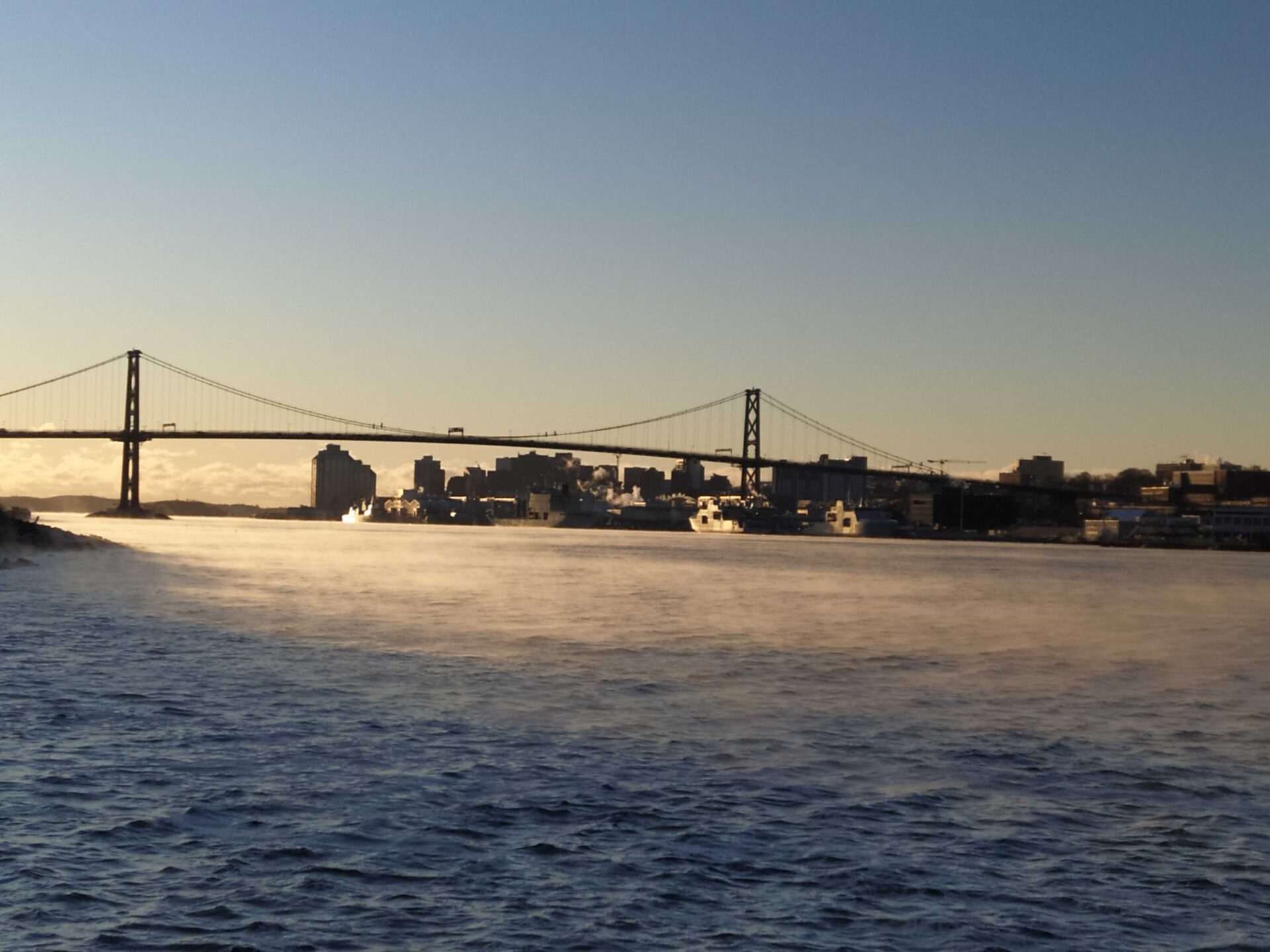
Hello, kwe’, and bonjour,
As we reflect on the past month of operations, we’re reminded of just how much can be accomplished when innovative science and technology, as well as collaborative teamwork and community, come together. Here’s a glimpse of what we’ve been up to at our Halifax Harbour pilot plant.
The Ripple Effects of Decarbonizing Our Project
Imagine being able to see every single emission associated with our project— every truck, every vessel, every action— and know exactly where we can do better to decarbonize and reduce emissions. That’s what our new life cycle analysis model does. It doesn’t just hold us accountable; it is inspiring our partners to rethink their own impact:
-
Our suppliers are optimizing truck routes in order to cut emissions and improve efficiency
-
Research teams are swapping out diesel-burning vessel trips for remote-operated vehicles
It’s creating a ripple effect—because decarbonizing our projects is critical to our success as well as the health of the environment and ocean.
You can read more about decarbonization and what it means for the world and our oceans here.
18 Days, 24/7: All Hands on Deck
In December, our system ran for 18 days straight! It was a team effort, with our operators working tirelessly, backed by new systems that let them swap out broken parts in minutes instead of hours. From software engineers to our company coach, from operations to life cycle analysis, our entire team has been all-hands-on-deck to make this happen. We look forward to sharing how much carbon we’ve removed once we have the final number!
Keeping Our Oceans Safe and Healthy
Of our monitoring efforts, Dr. Will Burt, Chief Ocean Scientist at Planetary, says, “Metals in sediment and the water column show no discernable increase. If metals dissolved in the water because of alkaline minerals dissolving, or undissolved PC8 itself, were building up in the water column, or much more likely, in the seafloor sediments (metals tend to glob onto particles and sink to the seabed), we’d see them. This is widely considered one of the major ‘risks’ of ‘mineral addition OAE’, so we take monitoring for it very seriously.”
Even when weather made sampling tough, our ocean technologist, Alex Whitworth, braved the waves every two weeks to collect this incredibly important data. The results tell us that we are on the right track towards a healthier ocean and planet for generations to come.
Science Meets Ingenuity
This month, we installed a new particle tracking sensor in collaboration with Sequoia Scientific, which gives us an even clearer view of how materials behave in the water. And because the ocean is a truly wild environment, we’re ready for the unexpected with our backup systems. Our backup systems mean operators can now swap out critical components in just minutes instead of hours, keeping our dosing continuous.
We’re also growing our partnerships:
-
We wrote letters of support for two new academic projects at Dalhousie University, which aim to explore alkalinity sensors and cutting-edge research tools
-
We were pleased to host a site visit with Environment and Climate Change Canada’s (ECCC), and answer all of their questions, demonstrating our commitment to transparency and safety.
Strengthening Community Partnerships
This project isn’t just about us— it’s about you, our community. Your support and curiosity, and your love for the ocean and environment, drive everything we do.
We were honoured to share our work on a national stage at the DFO Maritime Regional Showcase, highlighting Halifax as a leader in climate innovation.
Recently, Diana Philip, VP of Community Relations, and Eric Christmas, Advisor Indigenous Affairs, had the privilege of presenting Planetary’s work to Pitupaq, a partnership of five municipal units and five First Nations in Unama’ki (Cape Breton, NS). Mayor Brenda Chisholm-Beaton and representatives from the Collaborative Environmental Planning Initiative and the Unama’ki Institute of Natural Resources were also present.
In addition to this presentation, we have begun co-designing a community-driven fall program to foster knowledge exchange and shared learning with the Mi’kmaw Native Friendship Center. More information on this to come.
Lastly, we are launching “Breaking Ground: Making Waves”, a speaker series designed to highlight leaders driving impactful change. Our inaugural speaker is Ms. Crystal Nicholas, President and Interim General Manager of Wskijinu’k Mtmo’taqnuow Agency, Ltd. —an economic development partnership owned by the thirteen Mi’kmaw First Nations communities in Nova Scotia.
Looking Ahead
As we look forward to the spring, we’re energized by what we have accomplished, as well as what’s to come. Every sensor deployed, every data point collected, every tonne of carbon dioxide removed, every partnership strengthened, every emission avoided, brings us closer to a healthier planet and ocean.
If you are interested in keeping up to date with even more information, be sure to follow us on our social media channels: LinkedIn, Facebook, and Instagram.
Thank you, wela’lioq, and merci,
The Team at Planetary
